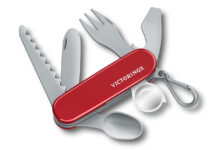
In my estimation, job loss is one of the most common personal crises one will likely face during their lifetime. The days of securing a job right out of school and staying there until retirement are long gone. Job loss differs from the other sorts of emergencies we typically prep for in that this doesn’t impact a neighborhood, town, or region. Its effects are felt just within the household, though it’s no less devastating to those involved. Make no mistake, when the family’s primary breadwinner ends up on the unemployment line, it can truly feel like the end of the world.
Fortunately, there are several things you can do to help mitigate this type of crisis.
Finances
For starters, do everything you can to stay on top of your finances. While it’s difficult in this day and age to avoid it entirely, work on reducing debt and strive to avoid accruing more of it. As best you can, build up a savings account for emergency use. Various and sundry experts recommend a minimum of three months’ worth of expenses, though more is better.
In the event of job loss, these funds will help bridge the gap until a new paycheck arrives. One way to do this is to develop one or more side hustles. This will hopefully bring in a few extra bucks each month. Plus, if you end up unemployed for a bit, it can help keep you afloat.
Education
Never stop improving your skill sets. There is absolutely no downside to seeking more education, more training, and more certifications. Even if they aren’t all directly related to your current job, you never know what the future may hold. You just might find that your current employer is willing to promote you when they see what you have to offer.
There are many free online education resources, including Coursera and edX. More and more employers are seeing the value of these sorts of educational outlets.
Networking
For some, this comes easy, and for others, not so much. But it’s important to develop a network you can fall back on in the event of job loss. Stay in touch with former coworkers, at least the ones you’ve been on friendly terms with, when they move on to other employers. Reach out to them if needed to see about potential job openings.
Health
Stay on top of health issues while you have insurance to pay for it. This includes vision and dental. If your employment is terminated, you may be able to extend your insurance overage through COBRA, but doing so is very expensive. If you see the proverbial writing on the wall and suspect that you might find a pink slip in your locker soon, you might want to try stocking up on any prescription medications you take if your insurance plan allows.
Build Up the Pantry
It should come as no surprise that having a deep pantry is useful for more than just natural disasters and civil unrest. The less money you need to spend on food and other necessities when you don’t have a paycheck coming in, the better, right? That said, if you are facing job loss, don’t be afraid to visit food banks and similar resources in your area. They exist for just this situation. If it makes you feel better about it, make a point of donating to them when times are good in your life.
Steps to Take
If you do end up suffering a job loss, here are a few things you should do.
Apply for unemployment compensation if you’re eligible for it. While the checks are just a fraction of what you were making, it’s better than nothing and can at least help keep the lights on and gas in the car.
Cut out as many expenses as possible. Everyone in the family needs to tighten their belts. Avoid getting takeout and instead work through your pantry. Batch errands to save on gas. Suspend or outright cancel things like gym memberships. Stick to just the absolute necessities. There’s nothing wrong with a little splurge here and there to have some fun, but be sensible about it.
Breathe. It’s going to be okay. Job loss can be very demoralizing and a huge blow to the ego. The thing is that just about everyone goes through it, often multiple times over the course of a career. It’s okay to take a beat, sit back, and just breathe for a bit. But remember, this is precisely why we prep, so we can face challenges head-on and prevail.



